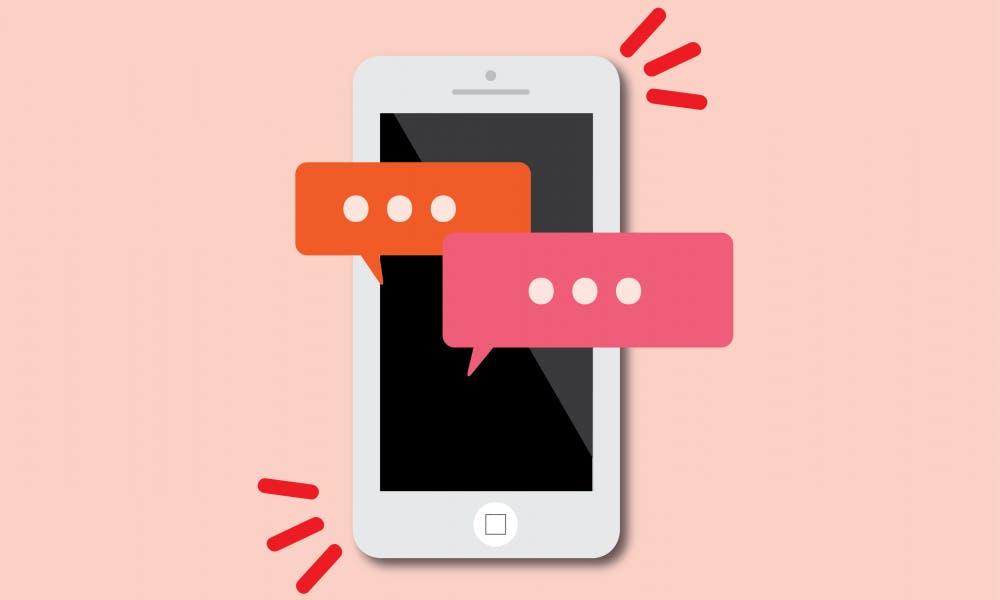My mom had always told me to get my head out of my phone and banned it any time we ate as well. I never really understood why and thought maybe it was just a generational gap thing.
When I was feeling a little stressed at the end of last semester, I decided to take a break from social media by deleting my Snapchat, Instagram, and Facebook apps. I did keep Messenger for emergency communication, even though I was not the best at responding through it. But in the back of my mind, I feared not being “in touch” with everyone, not knowing what was going on, and most of all, being alone.
Only after deleting the apps did I realize how much I used them. My usage was almost unconscious and many people might have experienced the same. The smartphone has gone from being used as a communication device to more of a crutch. We use our phones to avoid making eye contact with people on Locust Walk, in line at the grocery store, and in the elevator. We mindlessly scroll through our feeds when we can’t think of anything else to do.
A study from the University of San Francisco found that increased smartphone usage before bed was correlated with fewer hours of sleep and less sleep-efficiency. And after just a week of being off social media, I found that my sleep schedule had improved significantly. I woke up earlier because I was no longer staring at a phone before I went to bed every day. Consequently, I was more alert in my morning classes because I was no longer tired. When I reviewed my notes, I actually understood what they meant. I finally understood why my professor for a class on circadian rhythms kept telling us to keep the light out at night.
And those were just the physical effects.
Social media is bombarded by images taken multiple times, then cherry-picked, then maybe touched up and edited, and then finally posted. Pictures of struggling, crying, or being scared of the uncertainty of the future will never be posted. When we're on break, we see pictures of countries around the world, though many individuals, like myself, may not be able to explore other places just yet. Social media is flooded by the small minority that are loud and vocal and is devoid of the majority of students. It paints an unrealistic picture of the lives of those around us, making us believe that everyone is living a certain type of life that we must live too.
This internalization of others' lives creates a pressure to fit a mold that is not even there. We create a persona that is not even our own, leading us to live fake lives. When we come home, we ask ourselves why we are forcing things.
When I went off of social media for a bit, I didn’t see any of that and didn’t have to think about it either. The focus was not on anyone but myself. I also didn’t feel an urge to respond to others immediately. I would respond to messages on my time — granted, they were not emergencies. Still, I had time to hear myself breathe. Time seemed to slow down. It no longer felt like everything was a race. It was quite a surreal feeling, to say the least.
SEE MORE FROM JAY SHAH:
In retrospect, this was one of the best things I could have done for my mental and emotional health and I would highly recommend it to anyone. At a meeting with Counseling and Psychological Services administrators and staff, we came to the same conclusion. Social media, in many cases, propagates Penn Face, and a break is sometimes very necessary.
Be warned that you might miss some status updates, some “stories,” maybe some birthdays, some interesting articles, and some friends might be a little annoyed, but there is nothing more important than you, your health, and those who are closest to you. You will certainly thank yourself later.
JAY SHAH is a College junior from New Hyde Park, N.Y. in the Behavioral Basis of Behavior Program. He is the Vice President of the Undergraduate Assembly. His email is shahjay@sas.upenn.edu.



